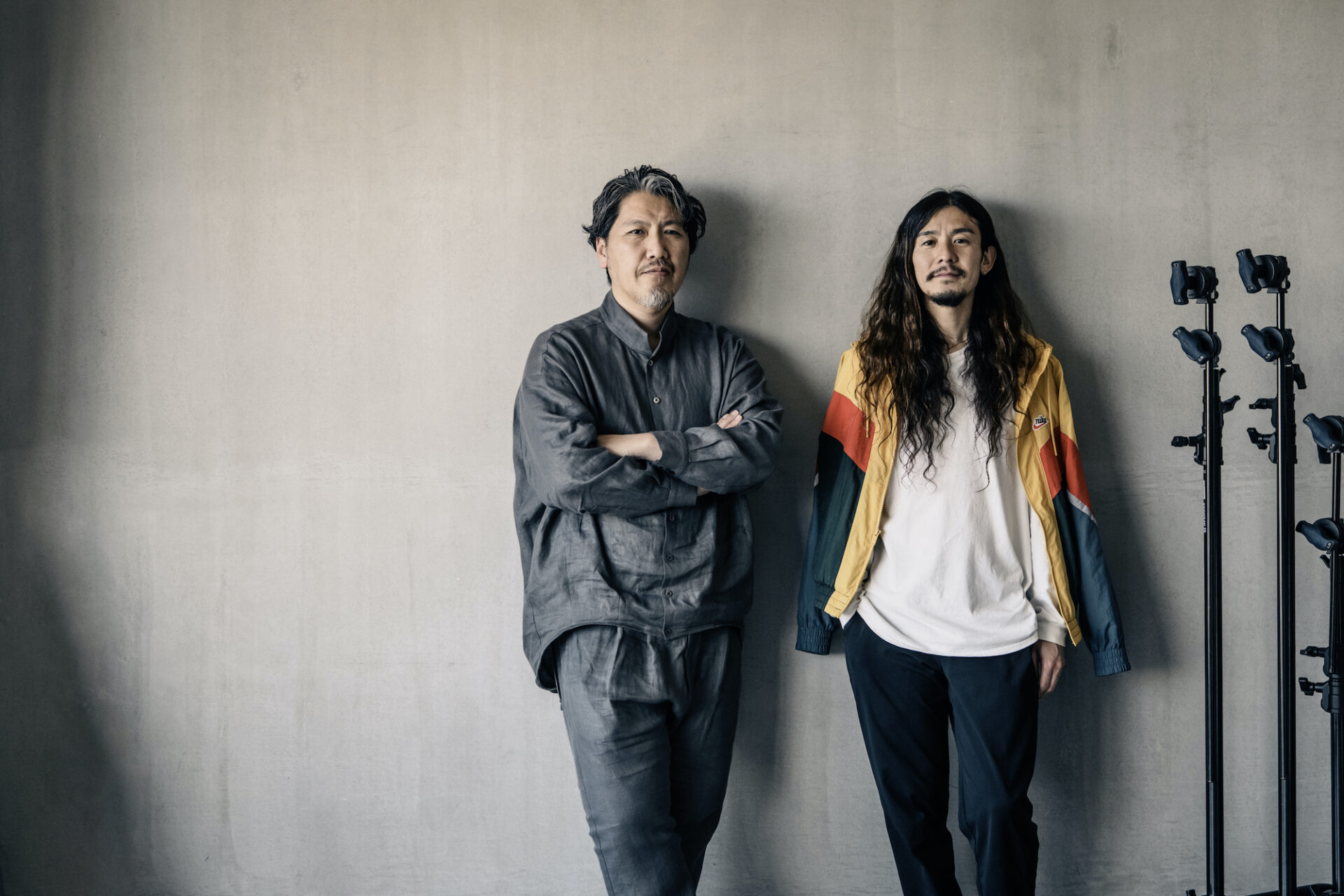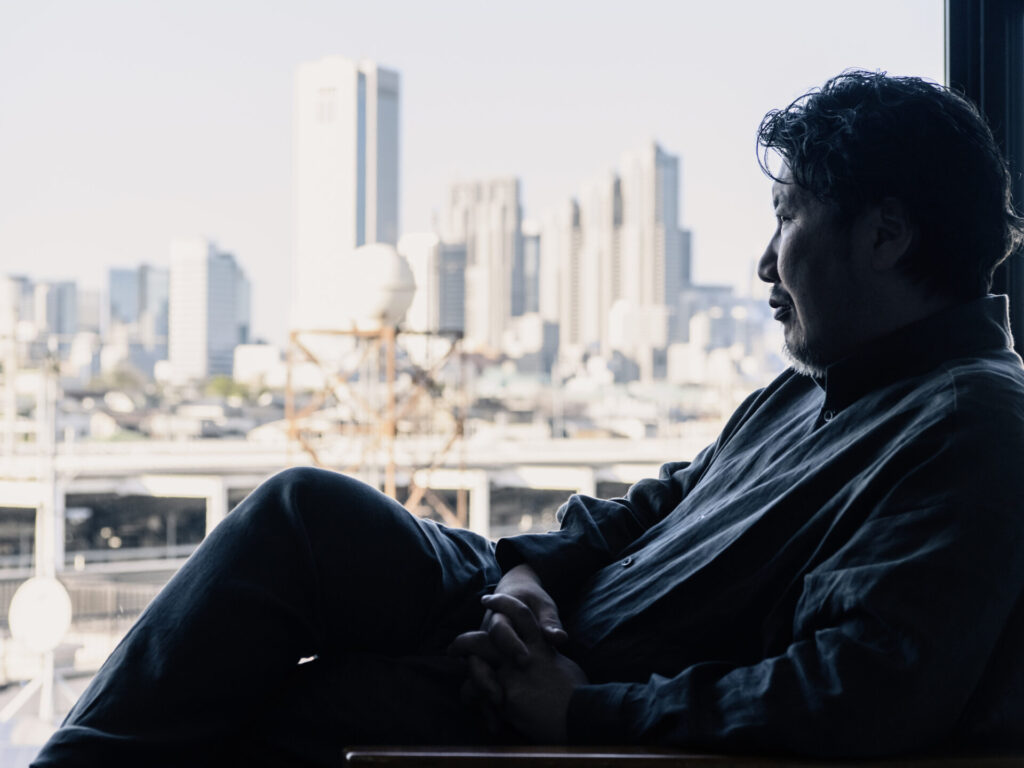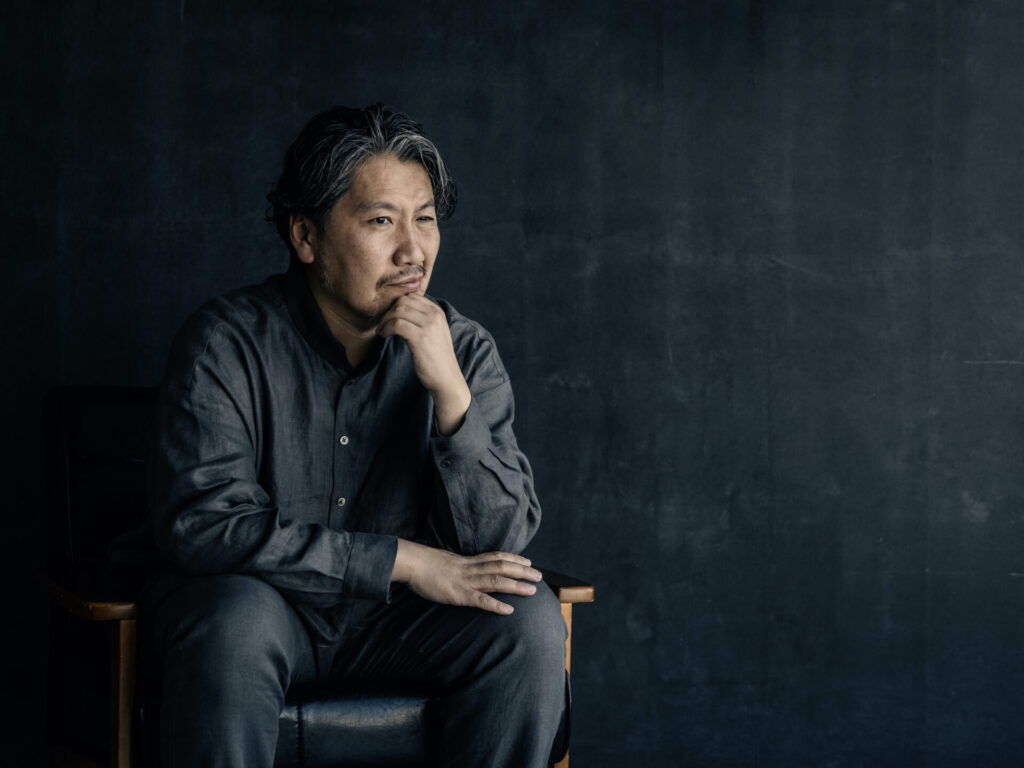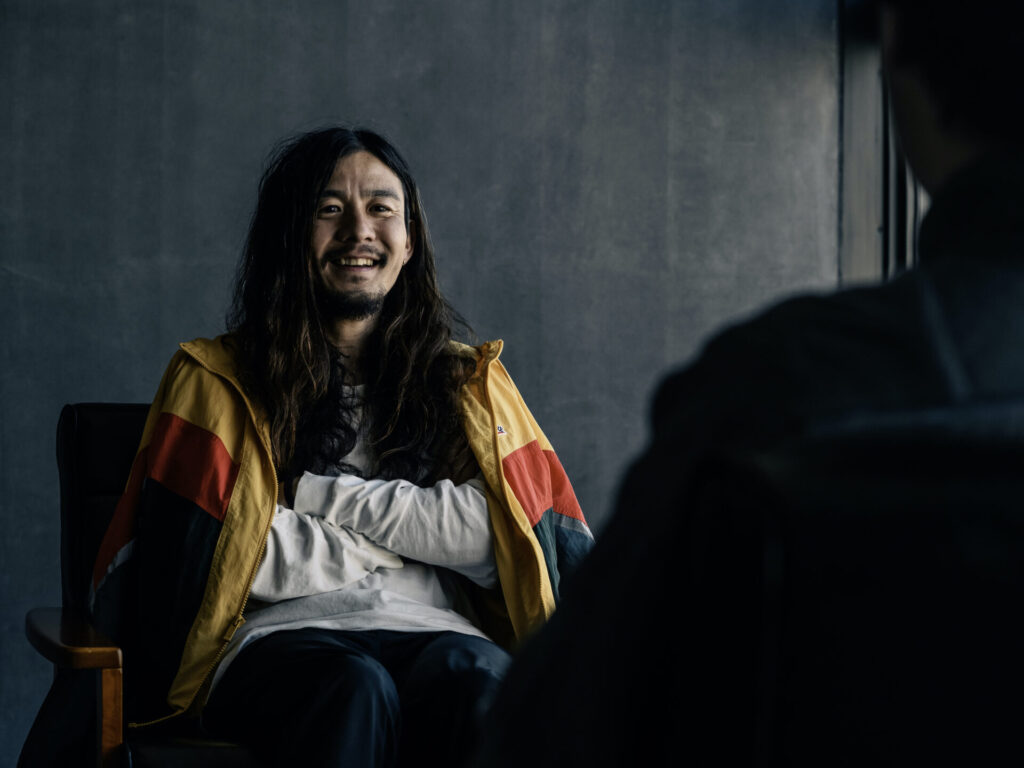
2024-05-25
Vol.6
Co-Founder / Representative Director at GiftX
Yuta Iitaka(part 2)
-
Central Principle to Have Fun at What You Do
-
Stying Attentive and Sincere
-
Recognizing Reality to Achieve Ideals
Along with the changing times, the environment surrounding marketing is changing drastically. To further complicate the situation is the rise of digital marketing. With the widespread use of smartphones and advanced internet access, the penetration of SNS and video content has rapidly increased the points of contact with information. Nevertheless, Yuta Iitaka, today’s guest who has provided marketing support to many companies, thinks the essence of marketing is always the same. The original meaning of marketing is to create value and make it widely accepted in society. The two who share the same view discussed marketing for the next generation.
Click here for the first half of the interview.

“Customers eventually see through lies or what you do intentionally.” (Iitaka)
Masakazu Shigeta: Today is the third time we have met. I have recently started to drill down on things related to “instinct” again. After all, what humans can continue to do is based on instinct. For me, it is creating products. In this day and age, I think that the attitude of people toward instinct has become complicated, but I have come to feel that it is OK to think about it more simply.
For example, suppose you use an elegant method in direct marketing, but if your action does not stimulate the customer’s instinct, it is a failure as a way of communication, isn’t it? Even when you do something that doesn’t make money, ignoring the business aspects while only focusing on sociality or eco-friendliness is not a good idea. As long as you work on it, even if you know it doesn’t make money, the action should inspire human instinct or bring essential value. We have to think that far when we take action.
Yuta Iitaka: Speaking of what is most important, the question Mr. Shigeta gave me the other days about “the first action I would take to revitalize an unsuccessful Chinese restaurant” was really on target for me. I had many ideas; we could improve the exterior or make the interior look good, but in the end, my answer was to “try to make the restaurant serve good Chinese food.” And it made Mr. Shigeta open up to me, like, “Oh, we share the same view there.”
I don’t like the word “marketer” because we can do anything if we want to. We can prepare “shills” and arrange them in front of the restaurant; then, you can make the restaurant look like it flourishes all at once. But it isn’t the fundamental solution because nobody continues to visit a restaurant where the food is not good.
I also have a favorite Chinese restaurant, and one of the reasons why I continue to go there is a complimentary dish the owner serves to regular customers for free. Of course, the restaurant doesn’t make any sales, but since it is fun to expect what the owner will serve me the next time, I revisit the restaurant. In a sense, my repeat visits might be a return for the restaurant, but since we all know the restaurant side has no such intention, we have no bad impression. Customers eventually see through lies or what you do intentionally, after all.
Shigeta: I believe one of the things we should not do intentionally is “self-sacrifice.” You can only continue business by having fun, not by self-sacrifice. Having fun at what you do is a central principle that gets things moving forward.
I believe the man at the Chinese restaurant serves an extra free dish because he finds joy in seeing the delightful faces of customers, not thinking of it as mere service. After all, service without joy never attracts people. But these days, some people regard having fun at work as wrong. A society with such value will never make something creative, and making an affluent society is impossible. For whatever reason, having fun and enjoying what you do is the proper attitude.
——Mr. Shigeta, you said your daughter often says, “Dad, it’s nice that you look like you are having fun at what you do.”
Shigeta: Yes, she often says so. But for a few years after I started a cosmetics planning company in 2001, I was so depressed after holidays and Sundays. Although I started a company to work freely, I wondered why I had to do things like this or what the point is. I had such a period. So I changed my mind and made a slogan: “Watch ‘Sazae-san’ with a Smile on Sunday Night” (laughs). I thought if I could reach that mentality, I would have “won,” and that is my mind until today.
The reason why watching Sazae-san often makes people depressed is that they have a clear border between work and play. If you can combine the two, watching Sazae-san will no longer be depressing. So, I always tell staff members to blur the border between the two. Some say I have to take it a little more seriously, but since I don’t want to get depressed watching Sazae-san, I always reply, “I do things with the attitude of ‘All’s well that ends well.’”
I believe there should be rational value in doing things with fun, and I would like someone like Mr. Iitaka, who has been involved in marketing, to talk about it from his perspective. That is also one of the primary purposes today.
Note:
Sazae-san Syndrome:
Sazae-san is a Japanese manga series first published in 1946. The TV anime series started in 1969 and has been broadcast every Sunday from 6:30 to 7:00 PM since its inception. The term “Sazae-san syndrome” is a Japanese version of the “Sunday Blues,” which refers to a mood of depression on Sunday night. The end of an episode of Sazae-san on Sunday night tells people that the weekend is coming to an end.

“The essence of marketing is ‘Iki,’ which means staying attentive.” (Shigeta)
Shigeta: The other day, I exchanged text messages with an outside director of Marubeni Corporation and learned an interesting story. When he joined the company, he attended a marketing school for working people. He asked a question about marketing to a well-known lecturer in the field, but the lecturer said, “You don’t need to think about unnecessary things; just learn what Iki (“chic, stylish”) is.” And the lecturer had him read a book, “The Structure of ‘Iki’” by Syuzo Kuki.
I told the newcomers who joined this April that marketing is all about “Iki,” which means “staying attentive.” The essence of marketing is proactive behavior, which means you predict the minds and feelings of others and anticipate their needs. I told the newcomers, “I have little to teach you guys, but out of kindness, I have one thing I want to teach for sure. That is the meaning of ‘staying attentive.’”
I told them such a thing because if you are attentive and proactive, everybody will like you, and as a result, people will invite you to various places, and you will get more and more experienced. What “staying attentive” means for me is to pay close attention to people’s behavior. When someone’s glass gets empty at a drinking party, a person with attentiveness immediately notices and asks if they need another. I want young members to remember this simple thing: marketing is not to miss the moment when someone’s glass gets empty. When I was a child, it was natural for me to bring a beer from the fridge to my father when he took a seat, though.
——The time has changed, and it is different today.
Iitaka: That’s true.
Shigeta: It is still OK to learn things like that after you start working, but one thing is clear: learning such things will surely help you, no matter how the times change. So, I always tell young members I will teach and tell them properly.
——Mr. Shigeta, it seems your father was like a mentor for you.
Shigeta: In my case, I was surrounded by many attentive and thoughtful people. Since our family practiced Japanese-style tea ceremonies and flower arrangements, the primary idea was, “If it is hidden, it’s the Flower.” People understood what others needed without words; rather, putting everything into words was considered unrefined. Under such hard-to-understand pressure, I always thought about what my father wanted me to do. Having experienced it in my childhood, I naturally developed the habit.
——Mr. Iitaka, Mr. Shigeta said his definition of marketing is staying attentive. How about you? What does marketing mean to you?
Iitaka: Talking about definitions is always difficult, but my opinion is close to him. Staying attentive is one thing, and at the same time, for me, being sincere is very important in marketing. People always appreciate your sincerity. I believe we can make the world a better place by combining the two.

“When you have worked in marketing for a long time, you notice you can come up with the idea of making money in a gray area. That is why I wanted to play in an area where I could fight fair and square.” (Iitaka)
——Mr. Iitaka, you mentioned in your recent book that video content on SNS such as Instagram and TikTok has reached its prime. In such an era, what do you think about the future of the position and value of texts in media?
Iitaka: I think we can roughly divide content into two types: shallow and deep. Shallow content is at the center of the trend today, and TikTok is one of the good examples. But you learn little by watching short videos on TikTok. Most people watch TikTok to kill time, just consuming the time. It is said that people often watch movies at double speed these days, but it does not convey the meaning put into a space after a line at all. Although YouTube also started short films, we are no longer in the era where if you do something interesting, people will watch it. Then, the content naturally needs to be deep, like in-depth information on a specific topic. I believe text is the best medium for obtaining such in-depth information.
For example, writing a book takes a lot of time, but only some people read it. Then, what is the reason to write it? It is because the writers find value and meaning in it, and the same goes for readers. Thinking about the amount of thought one can put into a book, such energy can be expressed only by texts. Even if you can find something human-like text generated by AI, you can never find interpretations of humans in it. What I mean by it is that AI can write something someone said in the past but can not write what they are thinking right now. In that sense, I’m sure the value of texts remains in the future.
Shigeta: I think reading texts is also an exercise of drawing visual images in your brain. But the ability is degenerating these days, and people develop less creative and business ideas. Among the abilities and skills, spatial awareness is probably the most deteriorating.
Iitaka: That’s certainly true.

Shigeta: But even if I tell people to train to improve such a skill, they can live without it in current society. Parallel parking has become easy with the auto drive function. However, I want young people to know that there are many cases where you can only become what you want to be with such a skill. You can do things without them, but you may need a specific skill to become what you want to be. So, I want young people to read the texts to learn how to visualize images in their brains. YouTube is a mere process of generating visuals, which means they automatically do what people should do with their brains: you don’t have to use your brain since you have the answer from the beginning. I am not talking about likes or dislikes but what we must do to train ourselves.
Iitaka: Speaking of what you want to become, there is always reality behind the ideal. For example, it is understandable for companies to hold their ideal form, but what if they run out of cash? I would like to ask Mr.Shigeta how to control ideals and reality inside you, including how you control emotions.
Shigeta: I think “being strong in finance” is crucial to avoid emotional fluctuations. Being weak in finance in business is like having a body without enough muscle training. There are many types of managers: some are good at creating products, while others are good at communication and sales activities. But in any case, one must not forget and make light of finance. Therefore, I studied finance to death.
——What do you mean by “to death”?
Shigeta: It means tremendous amounts of practice I took from the banks (laughs).

Iitaka: That is actually important, isn’t it?
Shigeta: Yes, we did all kinds of things to improve financial statements that satisfy banks. If you stay weak in finance, the relationship between the business you want to achieve and the money will become unclear. People often overlook the simple fact that you can not achieve business without money.
I have always said that creativity of good quality is only born under constraints. For example, if you are asked to cook with any ingredients you want, you remember what you ate in the past and try to make something similar. But if you are asked to cook with the leftovers in the fridge, it opens the door for your idea for the first time. The same is true in the management. We must be creative under the constraints where the conditions and finance budgets are set in advance. Unless we always consider constraints and produce the best output under them, we can not achieve the ideal.
I have invited various staff members to our company and increased the ratio of in-house creative works because I am passionate about not giving up on creating something even if we do not have money. We need certain budgets to ask for outsourcing, and the money goes out of the company. With in-house production, we can continue production as long as we pay for the employee salaries. This is the reason why we are increasing our internal resources. Even if we want to create something while enjoying it, there are always constraints. But as we try many things to overcome them, we can develop products that are different from the ones that large-capital companies with adequate money do. The critical point is how to deal well with the constraints. It makes the ideals and reality closer to each other.
Iitaka: I have fully understood now.
Shigeta: Now, let me ask you a question as well. I would like to know what your next ambition is.
Iitaka: My next ambition? Well, talking about the business, it is to eliminate the waste from the gift market. I always think about it seriously because the world will be a great place if we have made it happen. Also, since I like products, I want to keep involved in the products created by various people. I am the type of person who feels happiness in the growth of brands I have worked with.
——Mr. Iitaka, we feel your sincerity in the desire to eliminate the waste of the gifts. You want to change the world with sincerity and create a society where things are appropriately circulated.
Iitaka: Exactly. When I first launched GIFTFUL, brands really didn’t like it. This is because even if their products are selected, they do not make any sales once it is re-selected to another one afterward. But I have been telling them that if their items are sent as unnecessary gifts, it will surely ruin the brand. Now, the brands gradually start to empathize with the delightfulness that gift-giving brings to people. One of the brands has chosen GIFTFUL as the only gift service platform on which they provide the items. We negotiated with them for half a year, and they finally accepted the offer when one of the directors said what GIFTFUL did was “sincere.”
When you have worked in marketing for a long time, you notice you can come up with the idea of making money in a gray area with actions that almost fool people. But that is why I wanted to play in an area where I could fight fair and square. What we have been working on is that area of service. We’d love to put OSAJI in the lineup, so we await the opportunity (laughs).

Profile
-
Yuta Iitaka
Iitaka was born in 1986 in Tokyo. After serving as an executive officer at Basic Inc. and CMO at Hotto Link Inc., Iitaka co-founded GiftX in June 2022 with the theme “Evolution along with Warmth of People.” As a representative director, he manages GIFTFUL, a social gift service that allows receivers to re-select the gifts. The company was selected in the “Commerce” field of Nikkei Cross Trend’s 2024 edition of “100 Companies to Create Future Markets.” In addition to running GiftX, he is also active as a corporate marketing advisor. He has consulted for more than 150 companies so far.
Publications
Bokura wa SNS de Mono wo Kau (We Buy Things on SNS) (Discover 21, 2019)
SNS Marketing 7 tsu no Tessoku (7 Golden Rules of SNS Marketing) (Nikkei BP, 2023)
BtoB Marketing no Kiso Chishiki (Basic Knowledge of BtoB Marketing) (Mynavi Publishing, 2022)
Athlete no tame no Social Media Katuyou Jutsu (Social Media for Athletes) (Mynavi Publishing, 2019) -
Masakazu Shigeta
After working as an engineer in the music industry, Shigeta began his career as a cosmetics developer in 2001. Since 2004, he has produced a variety of cosmetics brands in the healthcare business of Nitto Denka Kogyo Co., Ltd., a metal surface treatment company founded by his great-grandfather.
In 2017, he founded Osaji, a skincare lifestyle brand, and became the brand director. He also produced Kako, a specialized shop for home fragrances perfume in Kuramae, Tokyo, in 2021, and a combined shop of Osaji, kako, and a restaurant enso in Kamakura, Kanagawa, in 2022.
In 2023, using Nitto Denka Kogyo’s skills, he produced a pottery brand, HEGE, and he also opened a restaurant serving rice porridge, HENGEN, in Kita-Ueno, Tokyo.
Publications
Taberu Biyou (Eating for Beauty) (SHUFU TO SEIKATSU SHA, 2024)
42-Sai ni Nattara Yameru Biyou, Hajimeru Biyou (Beauty cares to quit and start when you turn 42) (Takarajimasha, 2022)
Information
GIFTFUL
GIFTFUL is a new style of social gift service where senders select a gift, and receivers have the option to accept the gift or re-select it for another item of the same or lower value. The service allows the sender to add the considerate option of “re-selection” to the thoughtful gift.
https://giftful.jp/
GIFTFUL Corporate Plan
The corporate plan of GIFTFUL offers re-selectable corporate gifts, which enhance customer and employee experience. The re-selectable option delights the recipient. The payment is only necessary when the gift is accepted.
https://giftful.jp/business
Giftx Marketing Support
Experienced marketing professionals provide practical support and solutions to the sluggish business growth faced by companies in BtoB service, media, and e-commerce.
https://giftx.co.jp/marketing-support
-
Photographs:Eisuke Komatsubara
-
Text:Masahiro Kamijo